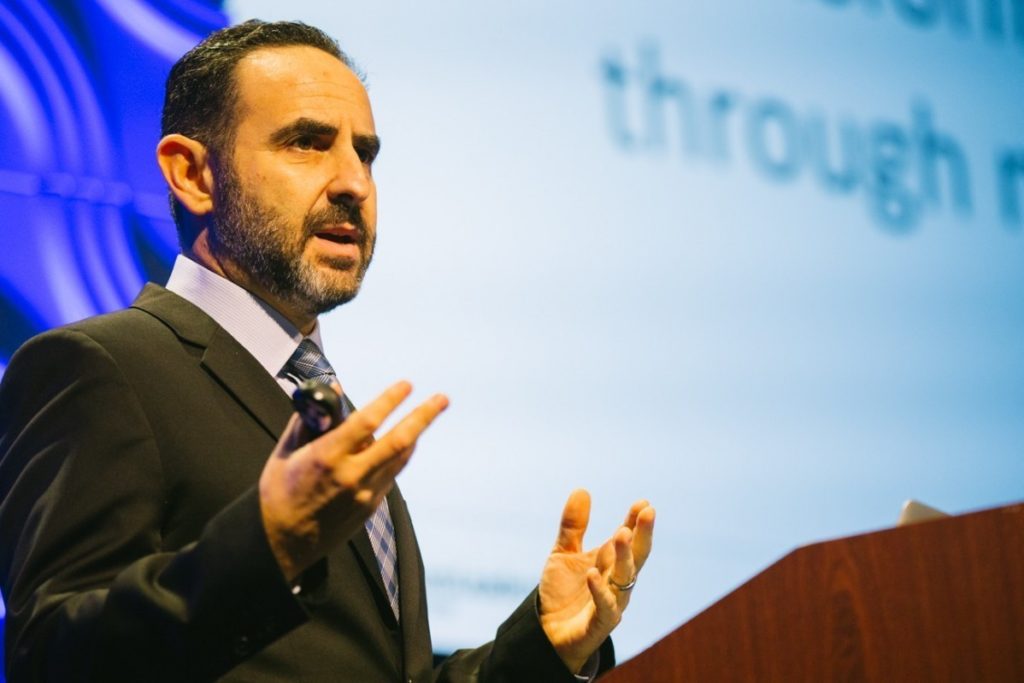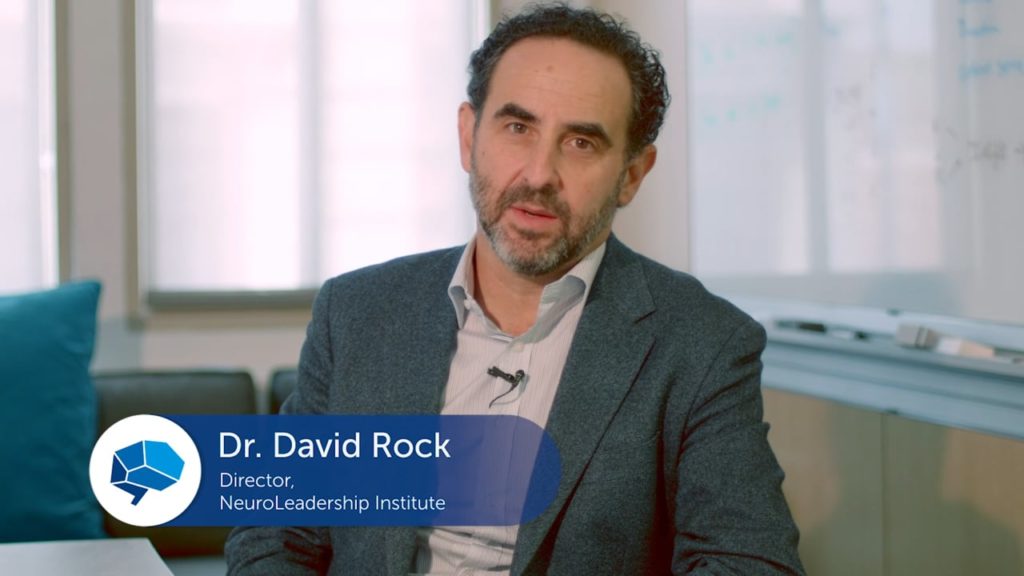How to Hack Your Head (Under Supervision of Science)
Neuroleadership pioneer David Rock on mind-hacking, and the science of motivation
Neuroleadership pioneer David Rock on mind-hacking, and the science of motivation
By Andrew Phillips Posted in Interviews, Writing on September 22, 2020 0 Comments 6 min read

When it comes to Dr. David Rock, the word “scientist” isn’t entirely adequate. The better descriptor is “evangelist.” With a striking Australian accent and a carnival barker’s ability to work the room (albeit one more TED talk than boardwalk), he’s a natural acolyte for the ability of science to improve the way we work.
The director of NeuroLeadership Institute, a leadership development platform with programs in 20+ countries, Rock uses science and our understanding of the brain to re-imagine work as a simultaneously productive and fulfilling enterprise. He’s not exactly a motivational speaker, and he’s not steeped in the cold academic language of your standard scientist, either. Calling what he does “brain hacking” isn’t quite right either. So, with all the buzzword science babble, I was forgiven for asking him, “What exactly do you do?”
“That’s a really good question. I’m not sure sometimes,” says Rock, laughing. “I’m helping to improve the way organizations work around managing people… not around managing finances or marketing or process… people.”
That gets us a little closer. But management workshops have been around since the first boss caveman streamlined his mastodon exchange to maximize club and rock efficiency. What is it about modern concerns that lent new credence to a scientific approach?
“It was more that there was modern science that was giving us a whole new way of addressing age-old concerns,” says Rock. “Asking someone why they do what they do is like asking the janitor of one building how the entire global economy is going. They kind of might have some markers, but they really have no idea.”
And, until recently, researchers weren’t all that sure either. “Essentially the science caught up and told us how we work much better. And suddenly you could talk about leadership with real biology in the mix… It didn’t just sell more tickets because it was interesting, or novel. It actually was a more robust, more accurate, more trustable paradigm or language.”

It’s important work because, as any scientist will tell you, the number of misconceptions about the brain is overwhelming. According to Rock, many people mistakenly believe that “there’s a left-brain, right-brain concept — there isn’t. People think they use 10% of their brain — they don’t. They use every square millimeter, all the time.”
Rock says people often harbor similar misconceptions about his approach. ”People think that we’re scanning to see if they’ll be a good leader or not, and we’re not doing that. We’re building a language to understand and improve leadership. We’re not testing leader brains in the scanner.”
Rock sees the work less as analysis and more as fact-based coaching. “In the end, what we’re doing is giving people better language for being more effective in the moment, in real time, as a leader, by having an accurate theory for what happens when you run a meeting and it goes well or doesn’t. An accurate theory for what happens when you have a good conversation or don’t.”
That’s what distinguishes his work; a toe-hold in brain rigorous scientific research. That’s necessary, because the internet is overrun with self-help resources steeped in pseudo-science.
“There are tens of thousands of books on leadership, and the majority of them are opinion, developed through observation,” says Rock. “I want to see the references in the back of the book.”
That standard has helped Rock become wildly successful. Based on his research and that of others, Rock argues that, from a biological point of view, different brains work in different ways. That’s good news for creatives used to being told to pull their heads out of the clouds.
“There’s strong individual variation in people’s ability to ideate,” says Rock. “And when it comes to creativity, a lower level of focus enables random things to come into the brain and hold your attention… All of that enables novel connections to occur, that might be shut down by more focused people. Highly creative people also often thrive under stress.They’re kind of bored if there’s not a lot of pressure.”
Of course, that creates a conundrum on the management end. If you let the creatives run wild, who actually makes sure things come together on a timetable?

Rock explains that, “There are a lot of creative people that don’t make great managers because managing is much less about divergence, you know, reducing irregularities. So you know plenty of creative people should never be managers. I think that creative people need to be managed by people who understand them… I think that’s the key.”
As basic as it is, trying to “understand” workers is actually a pretty revolutionary idea. In this way, many of Rock’s observations fly in the face of the Dilbert-isms of late 20th century cubicle culture. “A lot of the work processes were built at a time when it was all process work. And everything had a codifiable process and therefore you could scale things. And work wasn’t that creative except for a really limited few. And it also didn’t change that much.”
But, in the age of the internet, he says, “Practically everyone needs to be creative in some way.”
Of course, science isn’t the only thing tipping the scales toward a new, more worker-driven era of efficiency. The focus on creativity and happiness has come about because the very nature of work is changing. With so much automation and computer-driven productivity, it begs the question: are we entering a post-work world? And, from a biological point of view, is work something that we will miss?
Rock has an unambiguous answer:
“You look at the death rates of the people who retire, it’s kind of crazy… the really healthy and happy octogenarians I know are really busy writing books, and thinking, speaking, touring. The research on staying young and healthy as you age says you should be working on things you’re passionate about, and deeply connected to other people as well.”
Needless to say, Rock won’t be retiring from his passion anytime soon.